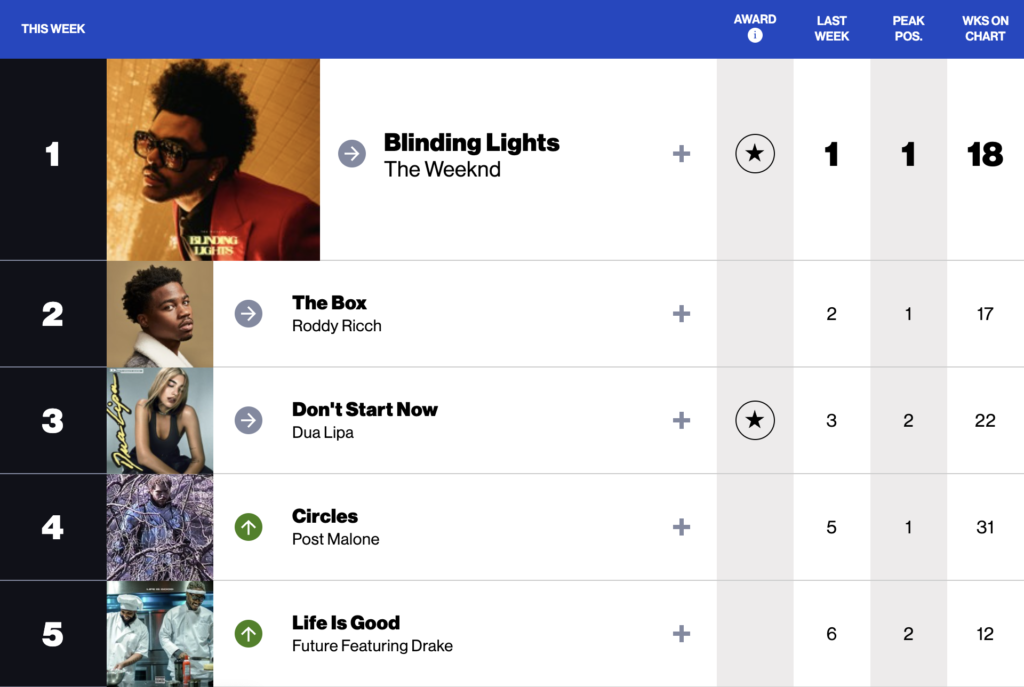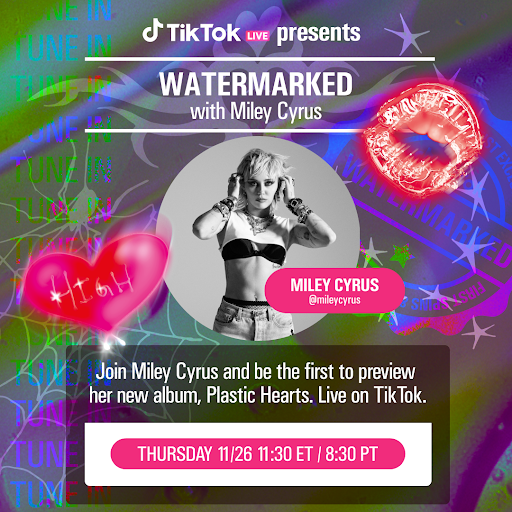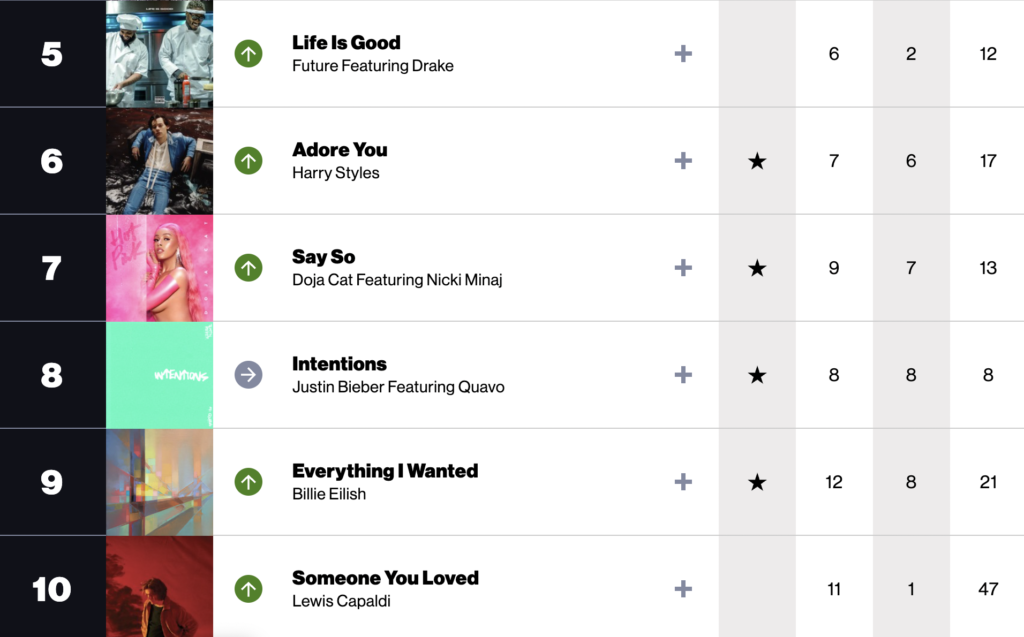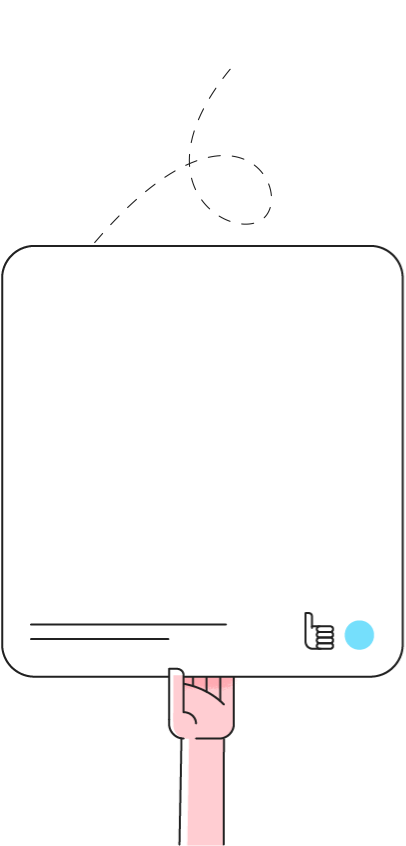Table of Contents
With TikTok taking the world by storm, it’s interesting to see how TikTok songs have drastically changed the music industry.
Looking back historically on how music distribution has constantly changed to meet the evolution of technology and the demands of the masses, we’ve already witnessed how the industry had to maneuver itself in the early 2000s with streaming. After all, name a person who doesn’t use either Spotify, Apple Music, YouTube Music, or some other variation of a music streaming platform.
However, the explosion of TikTok meant that the industry had to once again undergo a shift.
Changing Operations to Better Leverage TikTok
With over 1 billion users on the platform, TikTok songs wield such a large influence that various recording labels now have staff dedicated solely to supervising which songs are amassing popularity.
In an interview with Business Insider, the senior vice president of marketing at Legacy Recordings (a division of Sony Music), Andy McGrath stated that “Our entire music catalog is effectively tracked on a daily basis. We’re constantly monitoring actions, reactions, and trends that happen on TikTok.”
Even Tarek Al-Hamdouni, current SVP of digital marketing for RCA Records, states that the label tracks TikTok’s effectiveness by watching how an artist’s song numbers and demographics shift on other platforms such as YouTube and Spotify.
Acknowledging the power that the social media platform holds, TikTok has even created a team of its own to work directly with the industry regarding licensing deals and generating content ideas with various artists and labels – further cementing its impact on expanding revenue prospects.
With the power of TikTok songs to influence radio plays, album/song sales, and award shows, it’s no surprise that some of today’s biggest music artists have leveraged the social media platform.
Read more about the hit songs on TikTok and their accompanying impact here.
Music Marketing for TikTok
When Miley Cyrus was preparing to release her single “Midnight Sky,” her marketing team worked with the app to host Zoom calls with 15 different creators and give them an early listen to the track. She then also used TikTok to host a live-only listening session on the platform for the release of her album, Plastic Hearts.
Other artists like Khalid, BLACKPINK, Marshmallow, and Demi Lovato have all done similar events.
Audio plays a key role in dispersing trends and challenges across the app and across culture as a whole. Now, what’s occurring is that marketing in the music industry now must have a TikTok strategy.
And what’s TikTok without creators?
Thus, incorporating such creatives in the marketing process becomes equally as important as any other stop when doing promotion — especially in this day and age where TikTok influencers have immense driving power with their followings.
Looking to run an epic influencer marketing campaign on TikTok? NeoReach has the best experience in creating viral campaigns that convert on social media. Sign up here!
Marketing in the Hands of the People
It’s important to note that part of the reason why TikTok has come to be such a big player in the music industry is because of the sheer amount of user-generated content — or UGC if you’re feeling fancy — that is being created.
Whether that’s participating in a specific challenge, dancing, or lip syncing, the fact remains that app users must respond to music with their own clips. Therefore, this back-and-forth creates an active atmosphere for listening to music.
It only snowballs from there.
According to a study conducted by Midia Research, TikTok users are not only 8% more likely to buy artist merchandise monthly in comparison to the general population, but also 15% more likely to have a monthly music subscription (which in this day and age where artists are making fractions of pennies per stream, goes a long way in regard to supporting an artist).
Additionally, when you look at the data for the TikTok songs that do manage to trend, it’s not uncommon to find them charting on Billboard’s Hot 100 or Spotify’s Viral 50 playlist. In fact, MRC Data reported in a study done for TikTok that 67% of the platform’s users are more likely to seek out songs on music-streaming services.
In April of 2020, Billboard’s Top 10 songs on the Hot 100 shot to fame largely due to TikTok’s influence.

Via Billboard
Creating a campaign in the music industry seems to require a TikTok strategy. Read more here.
Creating New Hits…
One notable example of the power of the social media platform is Lil Nas X’s “Old Town Road.” While the artist initially uploaded his song to Soundcloud, he made headlines for Billboard magazine removing the song from its country charts. There’s no denying that the TikTok song’s meme-ability contributed to Lil Nas X’s breakthrough success.
Becoming the first song to reach 15x platinum, what “Old Town Road” signifies is the power of TikTok songs and the beginning of viral music successes.
US Certifications (@RIAA): @LilNasX & @billyraycyrus, Old Town Road 15x Platinum (15,000,000).
— chart data (@chartdata) September 20, 2021
From Olivia Rodrigo to Måneskin, TikTok’s worldwide reach makes it incredibly easy to see what styles of music are ringing with the tastemakers of today’s generation.
Here’s a list of other songs that went viral on the platform and may (or may not) end up on your playlist:
- “Gyalis” by Capella Gray
- “Break It Off” by PinkPantheress
- “ABCDEFU” by Gayle
- “Love Nwantiti” by CKay
- “Stuck in the Middle” by Tai Verdes
And Reviving Old Ones…
And it isn’t just new releases that are benefitting from TikTok’s special power.
In fact, hit songs like Celine Dion’s “It’s All Coming Back To Me Now” (which was released 25 years ago and set a one-day streaming record on Spotify and YouTube earlier this year) and Fleetwood Mac’s “Dreams” (this icon re-entered Billboard’s Hot 100 charts a full 40 years after its release) all made huge comebacks because of the app.
https://www.tiktok.com/@themontoyasfam/video/7045820473984404782
Thus, with the rising popularity of TikTok, it makes sense that radios take note and cater to what’s popular. With song plays being decided by radio station managers who are not only just as susceptible to current music trends as anyone else, but also are looking to sustain and expand their station’s audience, it’s no surprise that TikTok songs get airtime.
As one can see, in the span of a few short years, TikTok has managed to imbue itself quite well into this new fabric of the music industry.
TikTok’s Complications
As critical as the social media platform has become in regards to artist storytelling, it would be unfair to state that the hyper-focus on TikTok isn’t going to have consequences.
Numerous music artists like Charli XCX and Halsey have publicly stated how draining and frustrating it can be when labels force them to make TikToks to promote the songs.
@charlixcx Stream good ones tho !
While this artist-label dynamic isn’t necessarily new, it ignores the fact that TikTok’s ease of access and usage for so many people doesn’t make it any easier to make or break a song. The added pressure to make a viral TikTok from a record label then curbs an artist’s creative freedom to promote their projects in the way that they feel most comfortable.
In an interview with Zane Lowe for Apple Music, Adele took a moment to point out that the social media platform is generated towards a certain demographic.
She stated, “If everyone’s making music for TikTok, who’s making music for my generation?”
She went on to say how her music is for those who have more life experience under their belt.
“I don’t want 12-year-olds listening to this record — it’s a bit too deep, But the 30 and 40-year-olds who are all committing to themselves and doing therapy, that’s my vibe, ’cause that’s what I was doing. So I’m more concerned with how this record can help them.”
There’s truth to how TikTok – like any other social media platform – is designed for the upcoming generations. Al-Hamdouni stated to Business Insider, “If I see that in the course of a week our audience [on YouTube] went from being primarily 25 to 34-year-old males and a week later the majority is 13-to-24 female, then that’s a pretty easy bridge to connect between those two platforms.”
While TikTok certainly has its challenges for the music industry, there’s no denying its ability to elevate a song’s level of globalization. With new avenues for making content, what lies ahead is a path for people to continue to not only connect over music but also explore what “creativity” means in this new digital age.

























